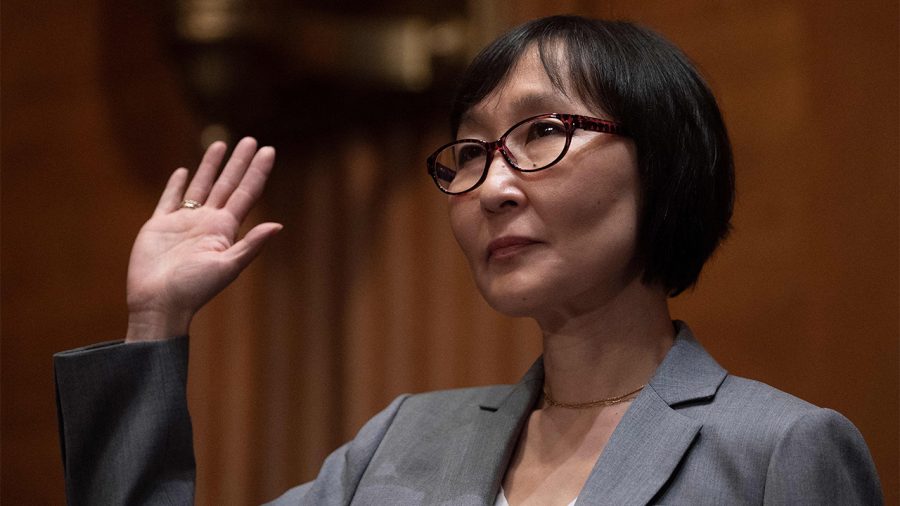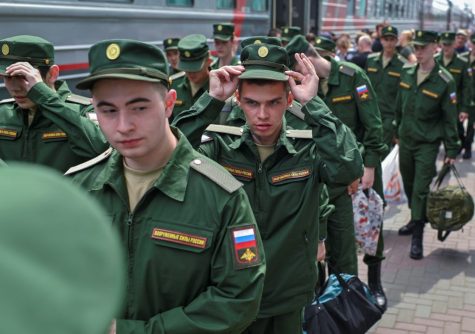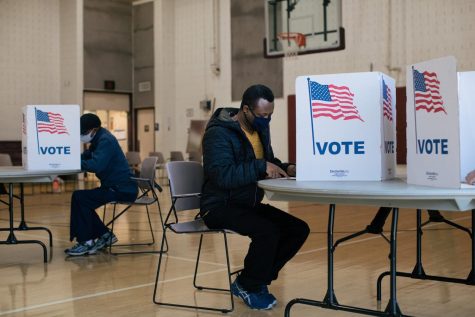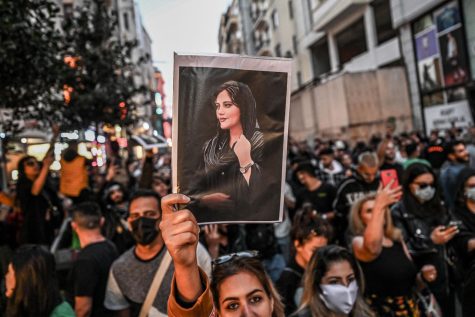Red-Baiting and Shadow Boxing
December 8, 2021
Addendum to the Saule Omarova discourse: Paragon of the American spirit, or Spy for a Dead Empire?
President Biden announced his nomination of Saule Omarova — a Kazakh-American lawyer, scholar, Cornell Law School professor, and former U.S. Treasurer Advisor under President Bush Jr. — as the new head of the Office of the Comptroller of the Currency on Sep. 23. Biden sent the nomination proposal for Senate consideration on Nov. 2. Omarova has since withdrawn from Senate consideration on Dec. 7, claiming that it was “no longer tenable to continue as a Presidential nominee.”
Omarova’s nomination faced strident backlash from the Republican party. Sen. Pat Toomey (R-Pa.) is a prominent critic of Omarova’s nomination, citing the supposed nationalization of the financial sector as the primary reason for his opposition. Toomey’s perception is informed by Omarova’s article published last year on Oct. 20, titled “The People’s Ledger: How to Democratize Money and Finance the Economy.”
The law review paper posited that the absence of a connection between the central bank and the national economy enables private institutions towards the gross leverage of public funds. Instead of “franchisee-based” banking, Omarova advocated for the migration of private deposit accounts into nascent FedAccounts to help underserved communities and a new Crypto-Based Digital Currency (CBDC) address the unregulated cryptocurrency sphere. In response, Toomey described Omarova’s position as “an aversion to anything like free-market capitalism.”
Economic quarrels notwithstanding, Omarova’s Soviet background drew the particular ire of Sen. Toomey. In a comment on the ideas expressed in “the People’s Ledger,” Toomey accused Omarova of harboring communist sympathies on the Senate floor; specifically, her acceptance of the V.I. Lenin Personal Academic Scholarship, her alma mater from Moscow State University, her undergraduate thesis on Karl Marx’s 1867 theoretical text “Das Kapital,” titled “Karl Marx’s Economic Analysis and the Theory of Revolution in The Capital,” and presenting her Twitter status on USSR’s lack of a gender pay gap as endorsements of the Soviet regime. On Oct. 5, Toomey requested a translated version of her thesis for review.
Minding the ubiquity of USSR party politics, it seems farfetched to assert that an undergraduate thesis, a scholarship, or a university should determine Omarova’s political bearings nearly 30 years onwards. “One could be a Party member, but not a communist,” stated Alen Askar, a Ph.D. candidate at Nazarbayev University, specializing in Soviet history during the Virgin Lands campaign in Northern Kazakhstan between 1950-1970. “Any paper in any academic field would have to align with Marxist ideology since that was the requirement for publication,” Askar said.
Sen. John Kennedy (R-La.) further probed Omarova’s ties to communism, questioning her past involvement and membership in the “All-Union Leninist Young Communist League” (otherwise referred to as the “Komsomols).” Omarova indicated that she had been a member, but not before explaining that “[membership] was a normal part of school.”
Within the context of Soviet history, “Omarova was trying to get ahead in life, and [joining the Komsomol] was an obvious path to success,” Askar discussed. He continued: “By the time Omarova joined the Komsomol, everyone was joining. Genuine socialists were in the minority.”
Hence, the Komsomol association was often integral to career development. According to Askar, “membership raised chances for a better job at a better location. Some joined to work in political administration; some did so for scholarships.”
The Komsomols were initially created to foster a new generation of ideologues and party elites. With each subsequent Soviet leader, however, the sway of ideology waned and the role of the Komsomol altered.
“The Komsomol reached its peak membership in the 1970s and ’80s, about 40 million. [From Brezhnev and onwards,] the Komsomol was no longer a marker of political engagement; [membership] no longer distinguished you from other young people,” clarified Dr. Zbigniew Wojnowski, Senior Lecturer at the University of Roehampton in London, specializing in post-WW2 and Cold War history from a Soviet perspective.
In reference to Alexei Yurchak’s 2006 study, “Everything Was Forever, Until It Was No More: The Last Soviet Generation,” Wojnowski cited an emergence of a widespread “parallel culture” among the Soviet youth during the 1970-80s, defined as “subcultures within the Komsomol that, [while not] pro- or anti-Soviet, existed parallel to the ideology.” The separation between civic and personal cultures was most reflected in the Komsomol, becoming “more of a space to socialize than a group for political organization,” Wojnowski said.
Though children followed proper ceremonial motions as intended of the Komsomol, the members were becoming passive. “If you want to form an amateur theater group or a rock band that might not even be to the liking of the Soviet authorities, you joined the Komsomol, because the Komsomol would provide the funding, the facilities, and the musical instruments that you need,” explained Wojnowski, stating that those belonging to the Komsomol maintained membership through idle participation and acceptance of the political aspect of the group in exchange for state-sponsored amenities, such as cultural activities, tourism opportunities, and discos. “Yes, you might still have to go to political meetings to vote on resolutions, but that was increasingly seen as a meaningless ritual, which you have to go through to engage in more meaningful activities within the Komsomol.” Since the Komsomols was a near mandatory youth organization with tangible political consequences for membership, this wasn’t a group one could conventionally resign from.
Returning to present day and crossing the political aisle, Democrats were split on Omarova’s approval. The Senate Banking Committee Panel Chairman Sen. Sherrod Brown (D-Ohio) defended Omarova’s nomination, proclaiming her to be eminently qualified to perform as Comptroller. Brown’s arguments run contrary to the Republican position on the candidate, believing that Omarova’s condition to be reflective and compelling evidence of her patriotism: “Escaping communism, moving to America for a better life, embracing American values or hard work and public service – what could be more American than that?”
Sen. Elizabeth Warren (D-Mass.) has chimed in support of Omarova’s nomination, asserting “sexism [and] racism” to be prime sources of opposition towards Omarova, further declaring the controversy to have been derived “straight [from the pages] out of Joe McCarthy’s 1950s Red Scare tactics.”
Beyond the party’s progressive wing, centrist Democrats in the Senate have indicated reluctance in confirming Omarova since the Committee hearing on Nov. 18. Sens. Jon Tester (D-Mont.) Mark Warner (D-Va.), Kyrsten Sinema (D-Ariz.), John Hickenlooper (D-Colo.), and Mark Kelly (D-Ariz.) have voiced opposition to Omarova’s nomination.
With how objectionable Saule Omarova’s past is with Republican detractors and moderate Democrat skeptics, it is evident that the fear of Soviet influence and communism lingers well into the 21st century, despite the three-decade absence of the USSR since its collapse in 1991. Askar opined: “Omarova’s nomination highlights a sense of disunity that exists within the U.S. political consciousness. On one hand, the USSR was a totalitarian regime, wherein Soviet citizens had no rights. On the other hand, Omarova is being critiqued because of the circumstances she was born into. A person born into that system had no other choice but to be part of it.” Thus, the question stands: If not for her choice to stay and attempt weaving herself into a social fabric entirely foreign, how does Omarova repudiate her Soviet background to render herself sufficiently “American?”
















